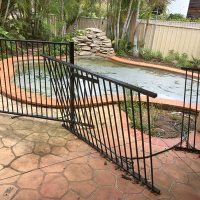The Landowner Is Legally Responsible When An Unsupervised Child Gets Injured On Private Property

In car accident cases, as in many other kinds of personal injury lawsuits, comparative negligence laws apply. This means that the defendant’s responsibilities to the defendant become less the greater the share of fault that the plaintiff bears for the accident. For example, an injured plaintiff who was 35 percent at fault for the accident can sue the other driver, and the court can order the defendant to compensate the plaintiff for 65 percent of her accident-related medical bills. Premises liability lawsuits are a special kind of personal injury lawsuit. Premises liability laws indicate that a landowner, whether the property is residential or commercial, is responsible for keeping the property free of preventable hazards. In a premises liability lawsuit, a plaintiff who got injured in an accident on the property can sue the landowner for negligently failing to prevent the accident. What matters in a premises liability case is not how careful or negligent the plaintiff was, that is, it does not matter what, if anything, the plaintiff could have done to prevent the accident. Instead, it matters why the plaintiff was on the property. If you got injured at a place of business or on someone else’s residential property, contact a Columbia premises liability lawyer.
Premises Liability Laws Protect Only the Smallest Trespassers
Premise liability laws assign different levels of responsibility to the property owner depending on whether the injured visitor was an invitee (a customer or guest), a licensee (someone who visited the property to work or conduct business), a trespasser, or a child. Landowners are not responsible for protecting trespassers on the property; if you sue your neighbor because his dog bit you when you climbed the fence into his backyard, the judge will say that you had no business climbing the fence into your neighbor’s yard.
Regarding children, however, the law does not categorize them as trespassers even if they entered the premises without the property owner’s permission. If your neighbor’s dog bit a sixth grader who climbed the fence into your neighbor’s yard, the court might rule against your neighbor. The chances of the plaintiff prevailing are even higher when the property owner creates an attractive nuisance, such as a swimming pool or playground equipment not secured by a locked gate. Lack of parental supervision is irrelevant, as the court decided in 2019 after a child drowned in a swimming pool at an apartment complex. The property owner argued that the child’s aunt and grandmother, who lived at the apartment complex, should have supervised him. The court ruled that the defendant had a responsibility to keep the gate to the pool locked, as an unlocked gate was an attractive nuisance.
Let Us Help You Today
The personal injury lawyers at the Stanley Law Group can help you recover compensation if your child got injured after wandering onto someone else’s private property. Contact The Stanley Law Group in Columbia, South Carolina or call (803)799-4700 for a free initial consultation.
Source:
jdsupra.com/legalnews/premises-liability-comparative-16966/
